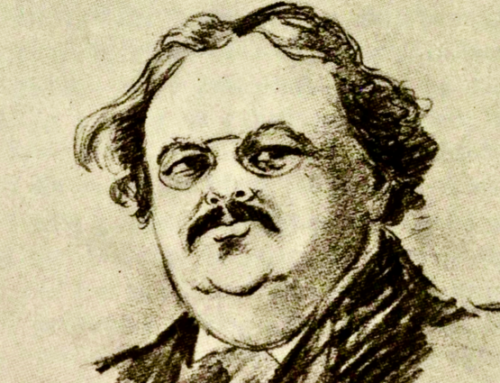The concept of bearings and distances, or the orientation of man, was understood with illuminating lucidity by St. Thomas Aquinas. The ability to see anything clearly, he tells us, is connected to the presence or absence of humility. If we have humility, our eyes are opened to the presence of wonder…
Bearings & Distances by Glenn Arbery (346 pages, Wiseblood Books, 2015)
 I recently reviewed Glenn Arbery’s novel, Bearings and Distances, and find myself drawn back to it in a meditative mode. It seems to me that the novel calls upon us to ponder the very orientation of man himself. Who is he, which is to say who are we? Where do we get our bearings? And what is the distance between ourselves and others? What is the distance that we place between ourselves and our neighbours, or between ourselves and our friends, or ourselves and our enemies? And what about the distance between ourselves and our self? Do we even know who we are?
I recently reviewed Glenn Arbery’s novel, Bearings and Distances, and find myself drawn back to it in a meditative mode. It seems to me that the novel calls upon us to ponder the very orientation of man himself. Who is he, which is to say who are we? Where do we get our bearings? And what is the distance between ourselves and others? What is the distance that we place between ourselves and our neighbours, or between ourselves and our friends, or ourselves and our enemies? And what about the distance between ourselves and our self? Do we even know who we are?
Chesterton once said that the self is more distant than any star. We might fathom the cosmos, he says, but we will never fathom ourselves. And yet if we can’t truly know the self, we can at least know where the selfish self can be found. We’re all in the gutter, says Oscar Wilde, but some of us are looking at the stars. The gutter is what we find if we become self-centered, looking too deeply into the darkened depths of the ego; looking at the stars sets us free, liberating us from the gutter within. Charles Baudelaire delved deeper and darker into the gutter of the self than arguably anyone else. When he got deep enough he discovered the devil dwelling in the shadows of the self and recoiled in horror from the infernal ego into the purgatorial arms of Mother Church.
This whole concept of bearings and distances, or the orientation of man, was understood with illuminating lucidity by St. Thomas Aquinas. The ability to see anything clearly, he tells us, is connected to the presence or absence of humility. If we have humility, our eyes are opened to the presence of wonder. It is wonder that enables us to contemplate the reality of things so that we can orient ourselves in relation to others, in the light of reality. Such contemplation leads to the gift of dilatatio, the dilation of the soul so that it is open to the reception of the fullness of reality, recognizing its place within it. On the other hand, the presence of pride, which should be properly understood as the absence of humility, closes the eyes to wonder, blinding us to any possible contemplation of the real, contracting the soul so that it gollumizes itself into a shriveled self-centered parody of what it is meant to be and called to be. It is this darkened world of pride and prejudice which animates Dr. Abery’s novel, and which is the animus that wrecks the lives of the people within it.
Braxton Forrest, the novel’s narcissistic protagonist, condemns himself to an ever-darkening reality because he lacks the sight that humility brings. He reminds us perhaps of Heathcliff, whom Chesterton described as having failed as a man as catastrophically as he succeeds as a demon. And yet Forrest does very occasionally exhibit acts of charity, even truly heroic charity, whereas one would search in vain perhaps for any such act of self-sacrifice on the part of Brontë’s notorious monster. Our sympathy for Heathcliff, if we are able to conjure any, is rooted in the knowledge that he was brutally abused as a child and, as a victim of habitual cruelty, has been contorted by the torture and brutalized by the brutality, so that he becomes sadistically cruel himself. In Bearings and Distances, it is sexual abuse, rather than physical abuse, which brutalizes the plethora of broken people who populate its pages. And just as the physically abused may become physically abusive so the sexually abused may become sexually abusive. This is the tragedy of sin; the tragedy of the sins of the fathers being passed on to the children.
And all of this is due to the egocentric blindness which prevents the prideful soul from being able to see clearly. Blinded by insatiable and addictive self-gratifying desire we become unable to orient ourselves objectively; we cannot find our bearings in relation to the reality beyond the self, thereby condemning ourselves to a world in which our fantasies become nightmares. This is the catastrophic world in which Braxton Forrest, Hermia Watson, and others find themselves in the novel, and the reality in which countless people find themselves in today’s narcissistic culture. In this sense the title, Bearings and Distances, takes on added resonance. It’s not just about losing our bearings through the disorientation caused by sin, it’s also about bearing the weight of that sin, each of us carrying the burden of our own self-constructed crosses and also the burden of those crosses placed upon our shoulders by the sins of others. We could also add that the novel involves a baring of the soul, which is stripped naked and scourged so that it might once again see itself in relation to reality. The bearing of the burden of sin and the baring of the soul in its scourging and scouring presence enables us to find our bearings once again, orienting ourselves correctly so that we might begin to find the necessary cure for narcissism.
All of the foregoing is forecasted and incarnated in the novel by the metaphor of bearings and distances in the context of the surveying of landscape. This is the literal foundation upon which the other applicable levels of meaning get their own bearings. Surveying, the science of which plays a small but significant part in the novel’s plot, is a definitively objective activity in which objective measurement of angles and distances is essential, precluding all notions of the relativity of things. The practice of the science of surveying is the presence of objective reality in the form of mathematics which reminds us of the objective nature of things, as distinct from the fogs of relativism in which the characters lose themselves.
Two other significant clues to the moral lessons offered by this darkest of novels are to be found in the two epigraphs which serve as heralds of all that follows. The first is three lines of poetry by Allen Tate, a nod in the direction of the Southern literature which is the source of much of Arbery’s inspiration:
O God of our strength, return us to Your wrath,
Let us be evil could we enter in
Your grace, and falter on the stony path!
Here the poet begs for the wrath of God to break the heart of stone. He asks for the vacuity of vanity to be filled with suffering so that the prideful soul can be scourged and restored to humble life. Here Tate echoes Wilde’s excruciating exclamation in The Ballad of Reading Gaol that “God’s eternal laws are kind and break the heart of stone” for “how else but through a broken heart may Lord Christ enter in?” Such desire for the wrath of God to bring us to our senses is at the broken heart of Arbery’s novel.
The second epigraph is taken from the Book of Job and is related directly to the novel’s title and theme:
Where were you when I laid the earth’s foundation?
Tell me, if you understand.
Who marked off its dimensions? Surely you know!
Who stretched a measuring line across it?
This final clue illustrates that Bearings and Distances can be seen ultimately as a meditation on the Book of Job, which is itself a mystical meditation on the meaning of suffering. God’s presence in His cosmos is as inescapably real as are the laws of mathematics and geometry. If we wish to get our bearings, we need to orient ourselves towards the source and wellspring of all reason and reality. God is at the center of things and we will only find ourselves if we gravitate towards Him.
The Imaginative Conservative applies the principle of appreciation to the discussion of culture and politics—we approach dialogue with magnanimity rather than with mere civility. Will you help us remain a refreshing oasis in the increasingly contentious arena of modern discourse? Please consider donating now.







Leave A Comment